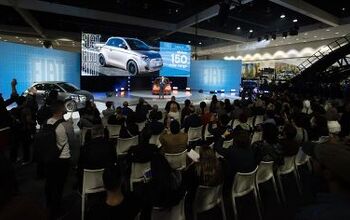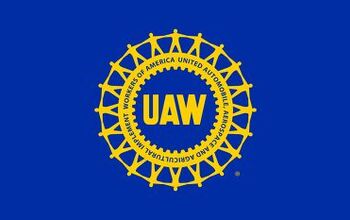Super Piston Slap: BMW Lawsuit, Direct Injection Hatred, Walnut Futures?

Thanks to links from George sent to TTAC, Sajeev writes:
Maybe everyone does indeed hate the BMW 3 Series. Probably because we read about one person, IrishTarmac, posting about his ”ninth” HPFP (high pressure fuel pump) replacement.
While that scenario may be extreme, pump failure is not an uncommon occurrence. There’s a huge number of replacement HPFP’s in BMW’s inventory, according to this source. Could this be the end of the N54/N55 HPFP Fuel Pump Saga/Lawsuit? Per last year’s Autoblog post, BMW knows what’s on the line: the 10 year, 120k extended warranty is a good move. Question is, does that stop the class action lawsuit in its tracks? I certainly can’t find any updates on it. But I think a recall, out-of-court settlement and a fat check to the lawyers is the only way out.
More importantly: as direct injected/turbocharged gasoline motors become a large part of our automotive landscape, are we in for more problems? High-pressure fuel pumps probably don’t like running low on gas, turbo failures are likely after years of abuse and rapid carbon buildup— fixed with walnut shell blasting–are distinct possibilities with this brave new technology.
It might be our automotive future. Get ready for it. I’m investing in walnut futures.
Send your queries to mehta@ttac.com. Spare no details and ask for a speedy resolution if you’re in a hurry.

More by Sajeev Mehta


































Comments
Join the conversation
It appears these problems are not uncommon. In the family we have a ’07 118i, 2 liter motor (gasoline). At around 20k km, all the fuel system was replaced, fortunately within warranty and the guys at the shop were very professional. At the time I was told by the dealer of other 3 cases with similar problems. Sort of ‘you are not alone’. But in a place infested with diesel cars, 3 is a big, big number. None the less I understand why people run for these cars: it’s the way they drive. And for a fast blast on a winding road they are unrivaled. But as a daily drive, in a way the car is just part of the background, nothing matches a Benz with a large gas engine. So far, over 200k km of trouble free motoring.
I'd like someone to name one...ONE...OEM that hasn't had at least one major component act up in a systematic way. Ford: 3.0L V-6's. GM: 3100 intake manifolds; Chrysler: minivan trannies; Honda: autoboxes; Toyota: sludge; Nissan: exhaust manifolds; Subaru: cylinder heads; VW/Audi: coils/sludge; etc etc. All cars have their weak spots; the informed consumer avoids or plans for them. And I can't either recall an OEM handling one of these issues in a completely stand-up way.
Makes me glad I have two low-tech, normally-aspirated OHV inline sixes attached to Jeeps in my garage. Not a whole lot to break on them and practically anybody (including me) can fix them for a pittance. Thanks to the support for those Jeeps (both OEM and aftermarket), I should easily be able to keep them running for the next 30 years.
Do you want the super sticky summer tiers that are $400 each and last 9,000 miles, or do you want the super hard tires that provide little grip but cost $75 each and last 50k miles? bias belted had been slowly faded out since mid 70's , those Polyglass Good year was pretty gripless. Even the cheapest Radial ply tire will handle 100X better than the bias belted. In the early days, Cop were reluctant to jump on the radial band wagen, as it can get high speed blowout!